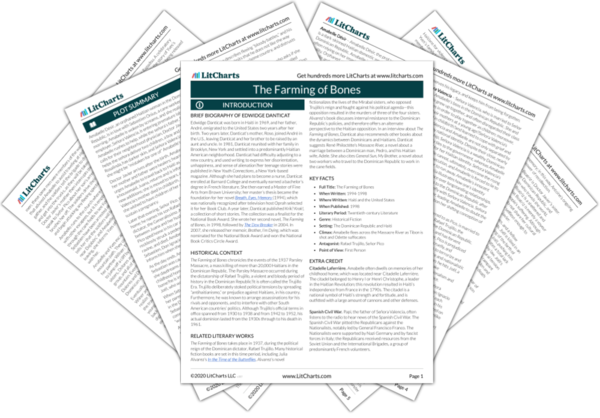Amabelle’s discussion with Juana reveals how Juana’s idea of home has changed over time. Juana mourns the absence of the señora’s mother, but her thoughts about time’s passage indicate that she is also mourning the loss of the family she might have had. Juana’s confession about time’s passage suggests that she may regret redefining home; it could be that she focused too heavily on building her employers’ home, at the expense of creating her own.
